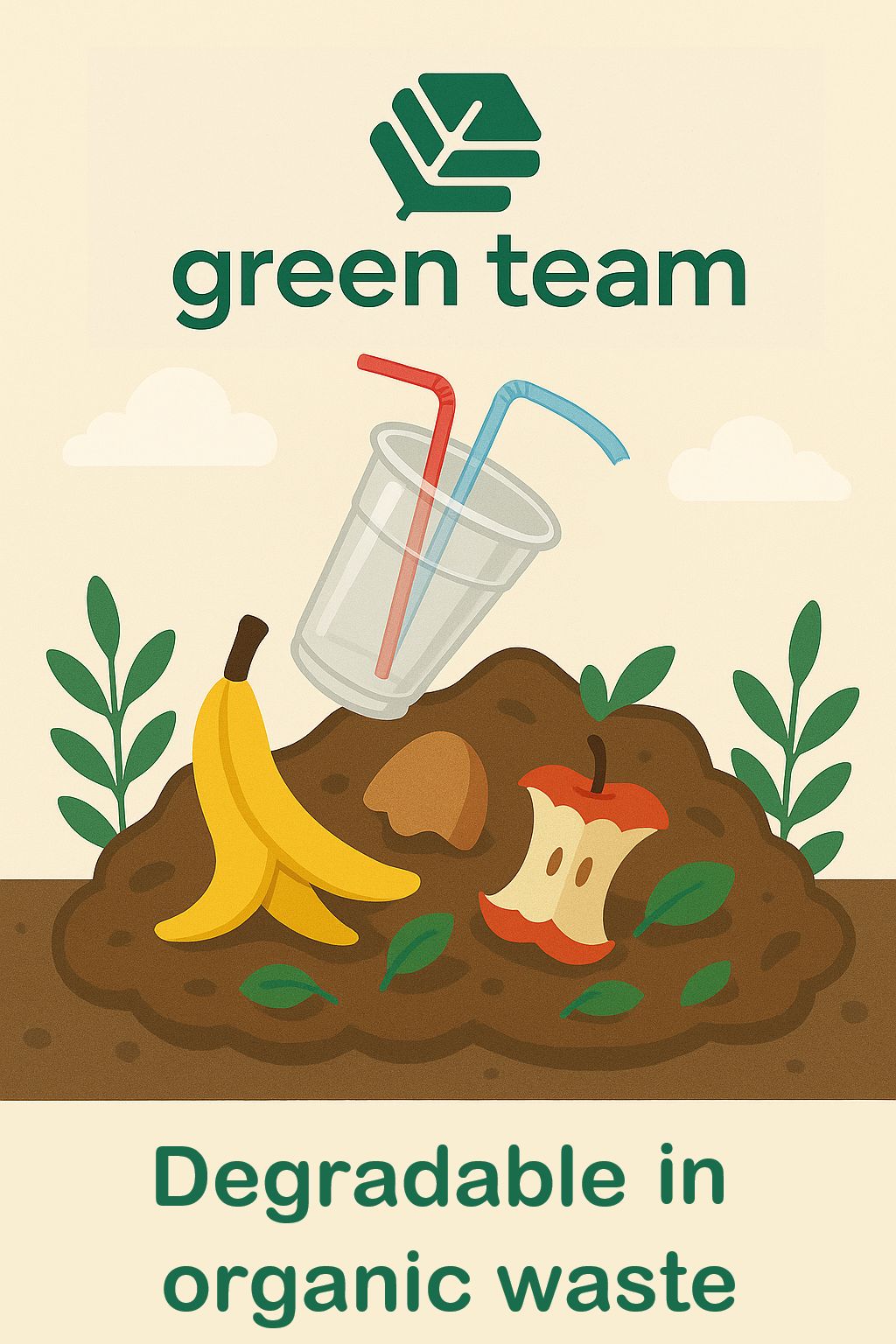Did you know you’re biodegrading right now?

Yes, even if you don’t notice it, the cells in your body are constantly renewing themselves! And when that happens, your dead cells biodegrade thanks to microorganisms.
But what does that really mean? At Green Team, we’re here to explain.
Biodegradability is the ability of a material to be broken down by microorganisms under natural conditions, transforming into simple compounds like carbon dioxide (CO₂), water, mineral salts, and biomass. This process is essential for closing the life cycle of materials without leaving persistent residues in the environment.
However, not all materials biodegrade under the same conditions or at the same rate. That’s why there are standards and certifications that help clearly define under what contexts a product can truly be considered biodegradable or compostable.
Conditions for biodegradation
For effective biodegradation to occur, certain essential conditions must be met:
● Presence of active microorganisms
● Adequate moisture
● Available oxygen (in aerobic systems)
● Favorable temperature (which can vary between home and industrial environments)
● Sufficient time for the process to be completed
Composting: Home vs. Industrial
Industrial composting
This takes place in facilities that maintain tightly controlled conditions:
Temperatures above 55 °C
Optimal humidity and aeration
Defined retention time
Professional waste management
The ASTM D6400 standard defines the requirements for plastics designed to be composted in industrial facilities. This standard is harmonized with others like EN 13432. Many compostable products on the market meet only this standard, which means they will not degrade properly in home composting systems
Home composting
This occurs in more variable environments, such as gardens, balconies, or domestic compost bins, where temperatures are lower and the process can take weeks or months.
At Green Team, we developed a technology called POLICANOICO®, a substitute for conventional plastic. POLICANOICO® is formulated to be home-compostable in household organic waste, and it is certified OK compost HOME by TÜV AUSTRIA. This ensures our products can break down in home composting systems, with no need for industrial facilities.
Oxo-biodegradables: A fake solution?
Unlike truly biodegradable materials, oxo-biodegradables are conventional plastics with added pro-oxidant additives that cause them to fragment under exposure to heat, light, and oxygen.
However, multiple studies and international organizations have pointed out that these materials do not fully degrade under real-world conditions and tend to break down into microplastics. For this reason, they should not be confused with compostable products, nor considered an environmentally safe alternative.
Biodegradability and composting are key processes for building a true circular economy. At Green Team, our products are formulated and verified to be home-compostable, under conditions accessible to any user who properly separates their organic waste.
By choosing products that are truly compostable according to international standards, we avoid false solutions and contribute to a cleaner, healthier, and more sustainable environment.

